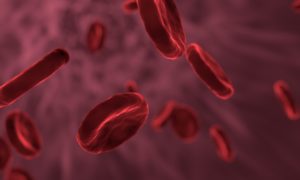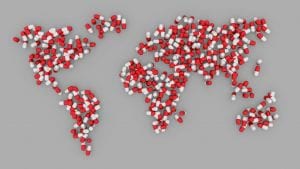Factor VII Deficiency
What is factor VII deficiency?
Factor VII deficiency is a rare bleeding disorder. It leads to excessive bleeding, and some affected individuals experience excessive blood clotting as well.
It affects one of every 300,000 to 500,000 people, making it the most common condition in the group of rare bleeding disorders.
What are the symptoms of factor VII deficiency?
Symptoms can vary in severity. Those who are diagnosed earlier in life typically experience more severe effects. Symptoms include:
- Nosebleeds
- Easy bruising
- Bleeding of the gums
- Prolonged, excessive bleeding after a surgery or injury
- Prolonged menstrual bleeding
Less common symptoms include blood in the urine and bleeding into joint spaces. In very severe cases, bleeding inside the skull may occur.
What causes factor VII deficiency?
Mutations in the F7 gene are responsible for this disorder. It is responsible for the instructions for a protein called coagulation factor VII. Without this protein, blood cannot clot normally. While medical professionals are aware that this mutation causes factor VII deficiency, they are unsure what causes the various levels of severity. They also know that this gene is inherited in an autosomal recessive pattern.
How is factor VII deficiency diagnosed?
Doctors will identify characteristic symptoms, examine patient history, conduct a clinical evaluation, and utilize blood tests. These specialized tests include activated partial thromboplastin time (aPTT), prothrombin time (PT), and assays.
What are the treatments for factor VII deficiency?
Severity heavily impacts treatment, as do symptoms present, patient’s age and overall health, and risks of certain treatments.
Treatment options include recombinant factor VII, prothrombin complex concentrates, and fresh frozen plasma.
Where can I find out more about factor VII deficiency?
Factor VII Deficiency Articles

MarzAA Earns Orphan Drug Designation for Factor VII Deficiency




Do You Think This Is Illegal Discrimination Against Hemophilia Patients?









